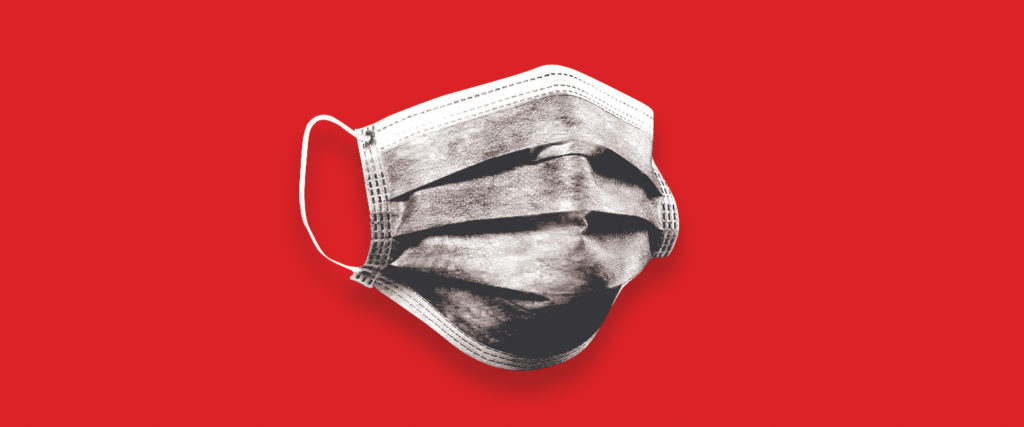Retail workers are demanding new protections and benefits from their employers

The coronavirus outbreak is likely to permanently change the relationship between workers at retailers that have been deemed essential, like grocery, hardware, and big-box stores, and their employers.
Each day, the list of announcements from retailers about new steps they are taking to keep employees safe in stores, as well as to thank them for their work, is growing longer. While many of the benefits issued are being billed as temporary, what’s become clear in recent weeks is that as their jobs are being classified as essential, retail workers see their jobs as being more worthy than ever before of better benefits. They are also having to work longer hours, and complete more tasks in a certain amount of time, as shoppers flock to their stores while little else remains open.
The retail industry has been notorious for resisting offering certain benefits that are common in other fields, like paid sick leave. And they’ve been able to do that because they rely on a workforce that is highly seasonal, and that is typically able to hire new workers fairly quickly. But that may change once the coronavirus outbreak is over.
“Labor models have got to change considerably,” said Dave Marcotte, senior vice president at Kantar Consulting.
Because the list of benefits that retail workers want each day is changing, Modern Retail is breaking down what some of the biggest changes are that retail workers are pushing for.
Ad position: web_incontent_pos1
Hazard pay
Hazard pay was basically unheard of in the retail industry up until now. The most similar thing that retailers might have offered workers up until now is disaster pay, or pay for hours scheduled for when their stores are closed due to a natural disaster.
Essentially, hazard pay is enhanced pay offered to employees in recognition of the fact that the work they are performing is exceptionally hazardous. Many of the workers that are calling for hazard pay say they’d like to see workers be paid for time and a half or double what they would normally be paid.
“Grocery stores and hospitals are on the frontlines right now, but grocery store workers don’t have access to the same precautions and resources as hospital workers,” reads a petition from Trader Joe’s workers calling on the company to offer hazard pay, as well as guaranteed pay if a store has to close due to a worker testing positive for the coronavirus. “Hazard pay and guaranteed closure pay provides security, comfort, and increased morale knowing our company has our backs.”
Ad position: web_incontent_pos2
Given that workers are fighting for hazard pay in light of their work being more dangerous during the coronavirus outbreak, it’s likely that the talk around offering hazard pay will subside once the coronavirus does. But, the looming question here is just how much retailers can and should offer workers during times of crisis. Retailers including Walmart, Target, Lowe’s, and Home Depot have offered their workers temporary bonuses or temporary increased pay. That often works out to either a one-time bonus of a few hundred dollars, or an extra $2 an hour for the next couple months. But many retail workers say that isn’t enough to compensate for the fact that they are at greater risk for catching the coronavirus by going into work every day.
Paid sick leave
Many retailers don’t typically offer their store employees any paid time off. Instead, they often give workers a certain number of shifts they can miss before they get fired.
That of course, has had to change in the wake of the coronavirus outbreak, as retailers can’t risk sick employees infecting other employees. At the beginning of the coronavirus outbreak, retailers initially pledged to offer employees who either tested positive for the coronavirus, or were ordered by a doctor to quarantine, 14 days of paid sick leave.
But in recent weeks, other retailers including Home Depot and Lowe’s have either given all of their employees more paid time off, or extended their paid sick leave policy to include employees who are at high risk from the coronavirus. It’s a recognition that paid time off shouldn’t just apply to employees who are sick. But, as some retail workers have told Modern Retail, these companies still don’t make it easy to get approved for paid time off.
What the coronavirus has made clear is the dangers of retailers letting employees come to work sick, increasing the likelihood that retailers will have to expand their paid sick leave policies even once the coronavirus outbreak lessened.
“Taking time off for being sick, which in retail is almost unheard of, is now going to have to become standard,” said Marcotte.
Access to personal protective equipment on the job
At the beginning of the coronavirus outbreak, some retail workers at places like Trader Joe’s and Target reported that their managers discouraged them from wearing gloves and masks on the floor, at risk of scaring the customers. Now, most of them are trying to secure masks themselves for all of its workers to wear. Additionally, plexiglass barriers between a cashier and a customer have become the norm at any retail store that’s still open.
Retailers spend a lot of time and energy on creating an in-store environment that makes customers feel comfortable and welcomed. What’s less talked about is making sure that workers feel comfortable on the job. Even if all retail workers aren’t wearing masks on the job a year from now, some rules around when workers can wear personal protective equipment on the job are likely to be loosened.
